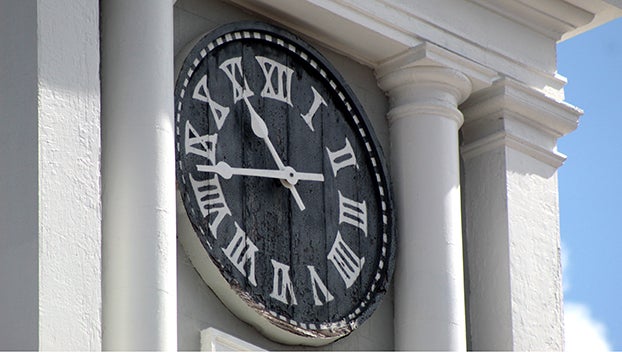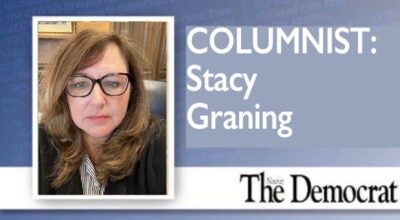It has been a great year for Mississippi DHS
Published 7:03 pm Thursday, May 13, 2021
|
Getting your Trinity Audio player ready...
|
By Bob Anderson
Over the past year, the Mississippi Department of Human Services has made concrete, positive changes in both our organization and in the lives of Mississippians. Whether it was navigating the pandemic, increasing internal accountability, or executing community improvement projects, MDHS has achieved some great successes, and we have set high standards for the year to come.
MDHS faced the pandemic’s challenges head-on and developed new programs to assist Mississippians through this crisis. One of these programs was the Childcare Crisis Assistance in Isolation Response Plan (or CCAIR), which provided statewide guidance to childcare providers on how to provide safe childcare options for essential employees. Out of the 900 childcare providers shut down by the pandemic, 585 childcare centers completed the CCAIR training offered by MDHS so that they could safely provide child care services to essential employees. Additionally, MDHS distributed Pandemic Electronic Benefit Transfer (P-EBT) funds to households with children who lost access to free or reduced-price school lunches due to pandemic-related school closures. In all, we distributed over $100 million to approximately 357,000 children who depended on these daily lunches.
MDHS also successfully navigated the exponential increase in applications for SNAP benefits brought about by the layoffs many Mississippians experienced during the shutdown. In the period from March 16 through April 6, 2020, MDHS received over 68,000 applications for SNAP benefits. At its peak, the agency’s employees worked overtime to process as many as 24,000 applications per week. From mid-March through the end of 2020, MDHS distributed over $530 million in SNAP benefits to families in need of food assistance. In early 2021, MDHS proposed a $90/month increase in the monthly TANF benefit—the first of its kind since 1999—which was subsequently passed by the state legislature and signed into law. Due to the diligence of our Economic Assistance division and IT staff, the agency was able to distribute this sorely needed additional cash assistance to Mississippi families by the first week of May.
Despite the challenges of COVID-19, MDHS has made significant organizational changes to increase efficiency and prevent fraud. One of the first such changes implemented was the creation of a new Compliance Division that works in tandem with the Office of Inspector General. Our new Chief Compliance Officer helped each division create standard operating procedures to maximize fiscal responsibility and programmatic efficiency. These new procedures include increased controls when monitoring subgrant funds issued by MDHS. These controls allow us to identify, investigate, and recoup any questioned costs from subgrantees; in this past year alone, new monitoring processes helped us recoup over $57,000 in suspect costs. The strength of the Compliance Division and the Office of Inspector General is further evidenced by their identification and recovery of approximately $2,900,000 in misused funds from SNAP and Child Support violations.
In early July 2020, I committed MDHS to a mission we are calling Operation Restore Trust. This commitment consists of three core values: integrity, demonstrated by myself and all division directors; compliance, measured by full and complete agreement of our actions with our federal and state guidelines; and excellence, embodied by our journey towards efficiency and effectiveness in every way possible.
MDHS’s community-based programs have made tangible differences in the lives of Mississippians. In September 2020, MDHS was invited to take part in the groundbreaking ceremony for a community water well in Schlater, Mississippi. Several families in the community of Schlater had been without running water since the Delta flooding in July 2019. MDHS’s Division of Community Services stepped up and secured a federal grant to provide a new well for this community. In December 2020, the Division of Aging and Adult Services helped distribute 400 Chromebook® computers to 167 nursing facilities in Mississippi. These computers permit residents of nursing home facilities to virtually “visit” their families, since in-person visits are restricted due to the pandemic.
Although we celebrate our achievements, MDHS continues to look forward. We’re hopeful about the results of an ongoing forensic audit and our annual single audit, which will determine our next steps towards resolving the misspent funds of years past. MDHS has also received an influx of funding from the American Rescue Plan for our child care program, as well as additional funding for our Community Services programs such as the Low Income Home Energy Assistance Program. Earlier this year, the agency began a critical self-evaluation process with the assistance of the American Public Human Services Association, which will inform the strategic planning of the senior leadership team and help the agency continue to move towards excellence. All in all, this has been an excellent year for the Mississippi Department of Human Services, despite the pandemic. It has been my honor and pleasure to serve the people of Mississippi as Executive Director, and I look forward to another great year.
Bob Anderson is executive director of the Mississippi Department of Human Services.






